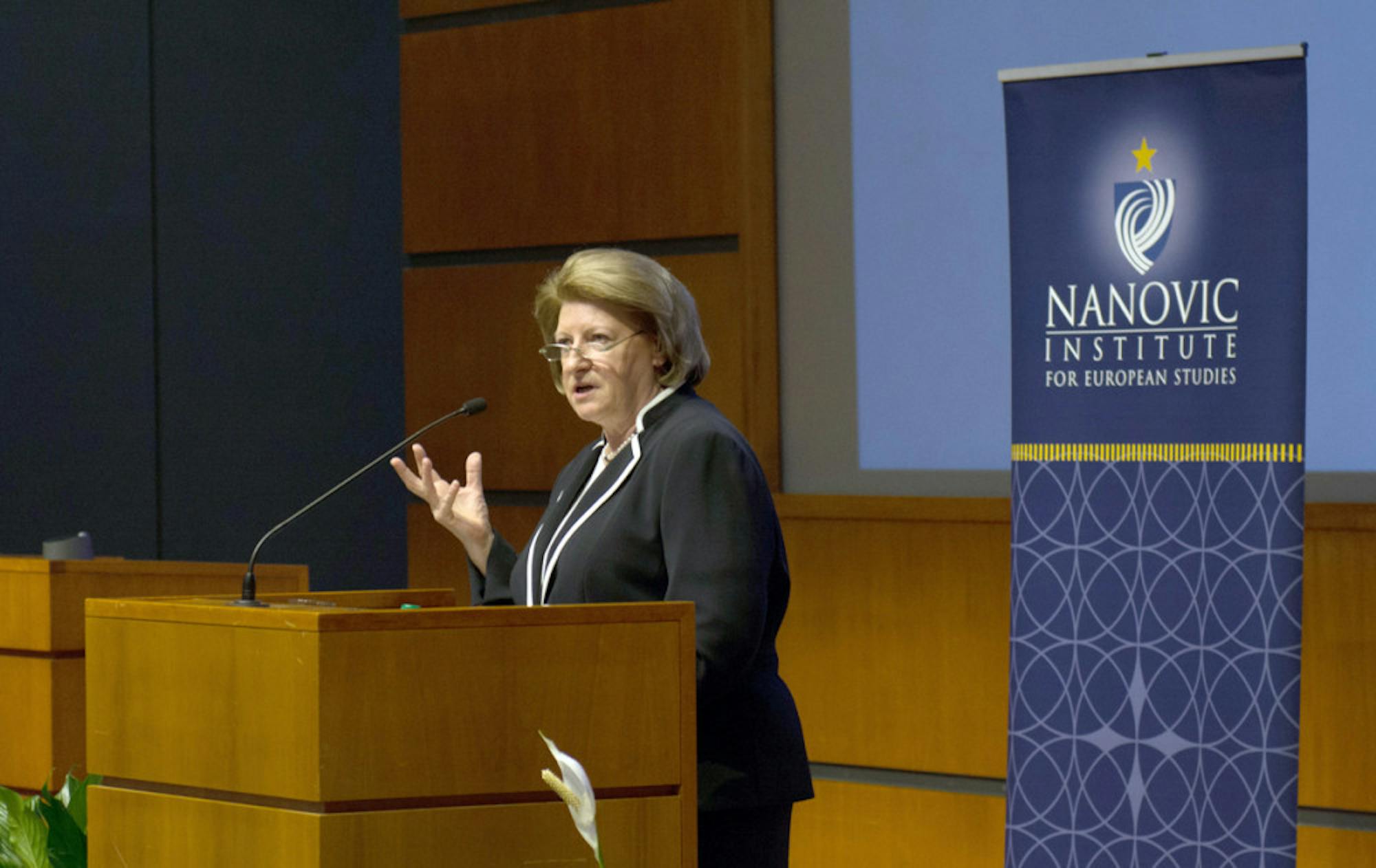Former Prime Minister of Poland Hanna Suchocka visited campus Tuesday evening to address a public audience in the Jordan Auditorium about the transition of Poland from a communist to democratic nation at the 2014 Nanovic Forum lecture.
“The founders of the Nanovic Forum, Robert and Elizabeth Nanovic, had a brilliant idea to bring some of the most distinguished European leaders to Notre Dame in any field and give them the opportunity to engage students and faculty on whatever themes they wanted to in whatever form they wanted to,” McAdams said. “The idea was not simply to get famous people but instead to get people who had really made a difference — people who have changed the world in important ways and done so in a way that makes sense for Notre Dame’s distinctive mission and values.”
McAdams said Suchocka, who played an integral role in converting Poland from a communist into a democratic nation, is a person who has made such a difference.
Suchocka, who also served as Polish ambassador to the Holy See from 2002-2013, focused her remarks on the political and economic transformation of Poland in a lecture titled “Democratic Poland: 25 years After the Fall of Communism.”
Suchocka began her lecture by noting the special nature of Poland in Central Europe as the first country in communist Europe to distinguish itself from Communism with public free democratic elections, held in June 1989. Suchocka served as Prime Minister from July 1993 to Oct. 1993.
She said the situation in Poland between 1981 and 1988 was very depressed, catalyzed by the declaration of martial law in December of 1981, and it was not until the Polish Round Table Talks in April 1989 that the situation began to improve.
“The Round Table Agreement opened the way for free democratic elections,” Suchocka said.
The Agreement, by introducing the office of president and therefore negating the power of the Communist party general secretary, resulted in an election held on June 4, 1989 that transferred power to the non-Communist Solidarność party of Poland.
Suchocka said the June elections were essential in the shift from communism to democracy.
“I am of the opinion that as a consequence of the June elections that everything has changed," Suchocka said. "After June 4 the political dynamism as a result of the elections went beyond the political round table agreement. It changed completely the whole political system. … We can see it is an agreement which opened the way to semi-democratic elections."
However, Suchocka said the transformation to a democratic nation was not without challenges, most notably, the public criticism to the economic changes of post-Communist Poland.
The public reaction to the transformation of Poland was separated into political and economic spheres, she said.
While most of the public supported the abolition of Communism, the public voiced much criticism over the economic changes that occurred as a result.
“Society at that time was not completely prepared for such changes because we suddenly tried to establish a free market,” Suchocka said. “We tried to make better social conditions … but suddenly we faced this completely new phenomenon [the free market] that changed the nature of the economic system and society was not prepared."
Suchocka said public passivity and lack of political culture rooted in the history of a non-democratic nation also made the initial transition difficult.
Despite the initial struggles of post-communist Poland, Suchocka said she found the resilient nature of Poland able to overcome and succeed as a democratic nation.
Suchocka said what helped the new government prevail was the late formation of a constitution. The Constitution of Poland was not adopted until April 2, 1997 – almost a decade after the free elections.
Suchocka said an immeadite formation of a constitution would have been rooted in old thinking. The passing of eight years allowed the government to face several ups and downs and realize what would construct the best policies for a democratic Poland.













